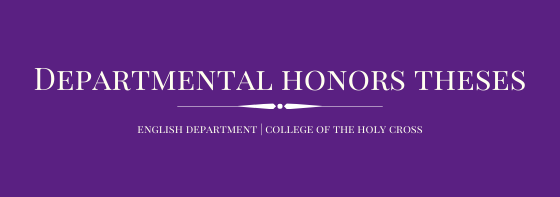
Date of Creation
5-10-2020
Document Type
Departmental Honors Thesis
Department
English
First Advisor
Laurie A. Britt-Smith
Abstract
The goal of this project is to demonstrate how digital interfaces are bodies of visual language that can be “close-read” and interpreted critically, just like any other traditional text; digital user interfaces, like poetry and novels, have form and content that complement and shape the meaning and interpretation of the other. It is meant to encourage academic discussions about digital interfaces to go beyond whether social media is “good” or “bad” to how digital interfaces are structured, why they are structured the way they are, and what effects these structures have on the way they communicate information and content to the user. Digital interfaces are just extensions of written texts—they employ more visual language to be interpreted by the user, but language nonetheless.
This project examines how the user resembles a traditional audience-member, a reader, and an actor in order to deliver a better understanding and picture of who and what the user of a digital interface is and why user interface and user experience design is a mode of rhetorical communication.
Tapping into a wide range of academic disciplines and sources—from Philosophy to Computer Science, from Plato’s Phaedrus to contemporary studies on search engines for elementary school children and interviews with UX developers and designers from Google—the chapters demonstrate how the user embodies these characteristics and how the critical study of user interfaces is not only practical and relevant to the current time, but also complements the long tradition of studying texts through a literary and rhetorical lens.
Recommended Citation
Doyle, Áine, "User Experience as a Rhetorical Medium: User at the Intersection of Audience, Reader and Actor" (2020). English Honors Theses. 2.
https://crossworks.holycross.edu/engl_honor/2
Included in
English Language and Literature Commons, Graphics and Human Computer Interfaces Commons, Information Literacy Commons, Speech and Rhetorical Studies Commons, Technical and Professional Writing Commons


Comments
Included in Virtual Academic Conference 2020.